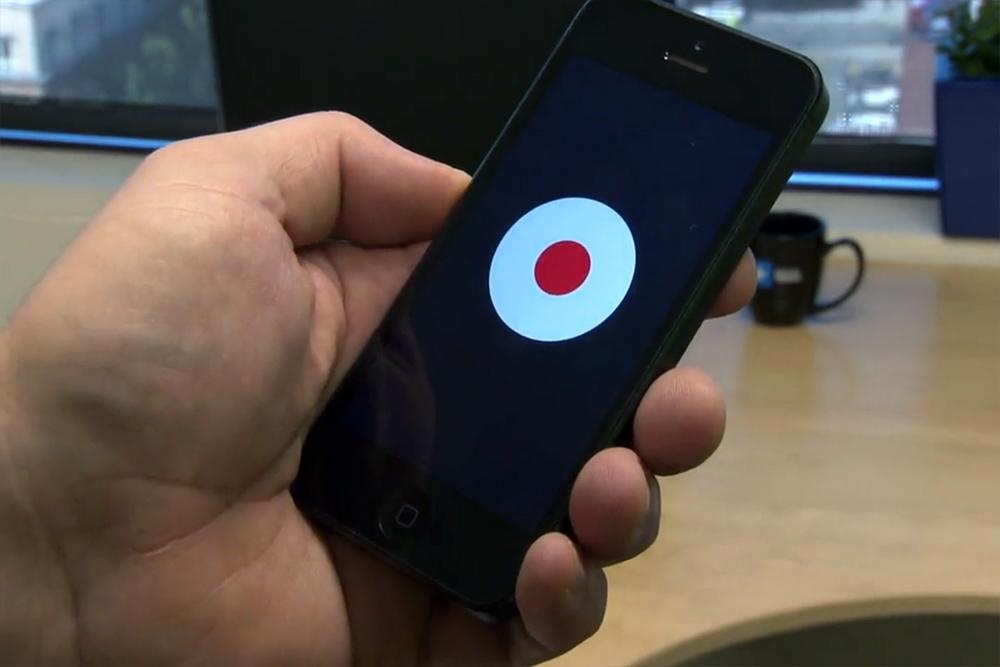Is It Illegal To Record Conversations In Texas?

Picture this — you’re having a conversation with your boss. It starts off as “constructive criticism” about your job performance. As his intensity grows, it starts to seem like there are more problems in his life than just the font you accidentally used in the latest news release. You look around and notice the office door is closed and no one else can hear the things he’s telling you, which seems to be driving his argument to even steeper heights. You’re also an iPhone wizard, so you decide to turn the recording app on while pretending to check the time. Later that night you replay the conversation that ruined your day to your friend and she says, “honestly, I think that is verbal abuse and I would go to HR right away.” You get really powered-up to fight this abuse and then stop to think, “Was I even allowed to do that? Can I record someone without them knowing?” You decide you’d rather not get into trouble so the situation goes unresolved and you try to forget about what happened and continue your week.
Hopefully, this situation has never happened to you, but unfortunately, it is relatively common. With the heightened stress and hierarchical positions in today’s workplace, someone is bound to get angry at some point. Fortunately for you, if something like this does occur, we have all the facts to keep your actions 100% legal.
The Texas Wiretapping Law
Texas has an interesting rule about recording conversations. The Texas Wiretapping Law (sounds a little James Bond-ish, doesn’t it?) states that as long as one person involved in the conversation knows of the recording, it is completely okay. That means that you, as the recorder, may record your conversation with any number of people. Sounds too good to be true? Not totally…
There is a hitch to remember. If someone involved in the conversation (who doesn’t know about the recording) is from a different state that has laws prohibiting the recording of conversations, then you cannot do it. If you are in doubt of your boss being from Texas, either subtly ask him or her in a different conversation or think again about recording at all. Also, if you are recording a conversation of which you are not a part of, you must seek permission from at least one of the active parties. We recommend getting this permission on voice recording before the incident so it doesn’t become a problem. Read moe about Texas wiretapping laws.
Company Rules May Ruin The Party
Now, in some cases companies have added rules about recording conversations in Texas to their handbooks. With the increase in dialogue concerning employment discrimination, more and more are doing so. These handbook clauses may prohibit employees from recording conversations in the workplace, even if the state they reside in allows it. Be sure to check those handbooks before recording any type of conversation in the workplace.
Of course, these rules don’t only apply to workplace conversations, but also include arguments with your mother about why you still live at home and chats with your cell phone company about the increasing price of data. This law is also the reason why conversations with police officers can be used in court for or against them.
Recording Phone Calls
Phone call recording in Texas is not much different. Have you ever been on hold with a company and heard a voice say, “This call may be recorded?” That means that they’re either 1) faking it so you won’t be rude to them, or 2) recording you and covering all their bases in the legal department. For your purposes, however, it is not necessary to inform the other party of your phone recording since you are directly involved in the conversation.
If these recordings are involved in a court case, they have to pass a series of tests, which deem them authentic. This pretty much means that you have to show them your phone and talk into the recorder again so they know it is you – easiest test ever!
For any questions or concerns about The Texas Wiretapping Law, please contact Cofer Law at 817.810.9395.



